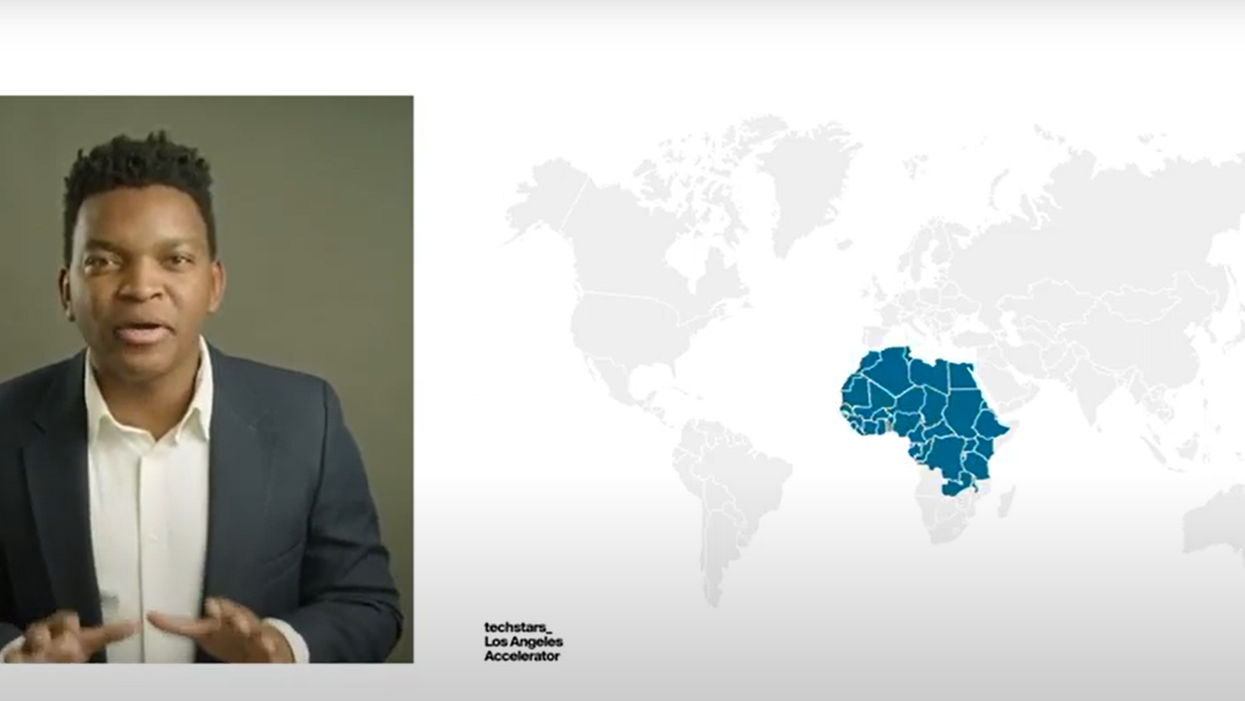Data Collection Takes Center Stage at Techstars LA’s Demo Day
Keerthi Vedantam is a bioscience reporter at dot.LA. She cut her teeth covering everything from cloud computing to 5G in San Francisco and Seattle. Before she covered tech, Keerthi reported on tribal lands and congressional policy in Washington, D.C. Connect with her on Twitter, Clubhouse (@keerthivedantam) or Signal at 408-470-0776.

Techstars Los Angeles hosted its annual Demo Day on Thursday, featuring a cohort of 12 startups from across the world that are working in health care, space, ecommerce and more. The event capped a three-month accelerator program that all of the companies attended in person in Los Angeles, allowing a virtual audience to discover the seed and pre-seed ventures searching for funding and potential partners.
While the startups spanned from commerce to quantum computing, many of them had one thing in common: data collection. All of us are familiar with what data collection means for consumers: Spending just a couple days with my new cat-owning roommate, for instance, once spiraled into a deluge of kitty litter ads whenever I scrolled through my phone. For the startups, data collection means opportunities for creating solutions that can save companies money and help ease bottlenecks.
Showcases like Demo Day usually demonstrate the kinds of technology that investors think will have resonance in the market. The cohort’s health tech ventures, as an example, were largely spurred by issues in the health care system that were exposed by the pandemic.
Matt Kozlov, managing director of Techstars L.A. and a longtime investor in these industries, told dot.LA he specifically looked for companies that didn’t need to raise that much money—either by bootstrapping, becoming profitable early on or a mix of both. The startups leave the program with a $20,000 investment from Techstars; in return, Techstars gets a 6% stake in each company.
Rwazi, a Mauritius-based startup and Techstars L.A.’s first investment in Africa, was one of the presenting companies tapping into consumer habits of the developing world, which contributes $5 trillion to the global economy every year but lacks comprehensive data because a lot of digital transactions are not traceable.
The seed-stage company aims to collect and share consumer data from regions that conduct a large portion of transactions through cash. Using Rwazi, companies can analyze customer data like which demographics are buying their products, and the company’s “mappers” collect that information from small and large businesses and share it through the platform. Rwazi, which currently operates in Africa plans on expanding into South, Southeast Asia and South America. Joseph Rutakangwa, CEO of Rwazi, called that region alone a “$40 billion opportunity.”
Then there’s Pear Suite, a Seattle health startup serving the elderly population. Health care organizations lack data about patient behaviors that may allow them to provide preventative care before a grandparent falls ill or ends up in the emergency room, adding money to the already expensive health care economy. Pear Suite collects and leverages patient data that healthcare organizations can use to predict and avoid potential issues down the road.
Lastly, San Francisco-based Squid iQ came onto the scene after the pandemic’s upheaval of the antiquated hospital system, where ventilators and beds could not keep up with demand for care, and physicians had to make difficult decisions about who to treat. Poor medical equipment inventory has long plagued hospitals who deal with an array of emergencies and sometimes can’t locate a life-saving device. Squid collects data on the type of technology, how long it has been used as well as where it is located when not in use. The process may allow health care staff to spend more time caring for patients and help hospitals save money.
By and large, health care has fallen behind on optimizing data collection for the purpose of improving care, reducing costs and saving lives. Data collection, in some cases, is a game-changer—and it will be interesting to see if industries operating with archaic technology will embrace these startups, or if these new companies will hit the same bottlenecks as the ones before them.
Keerthi Vedantam is a bioscience reporter at dot.LA. She cut her teeth covering everything from cloud computing to 5G in San Francisco and Seattle. Before she covered tech, Keerthi reported on tribal lands and congressional policy in Washington, D.C. Connect with her on Twitter, Clubhouse (@keerthivedantam) or Signal at 408-470-0776.



 Image Source: Northwood Space
Image Source: Northwood Space

 Image Source: JetZero
Image Source: JetZero